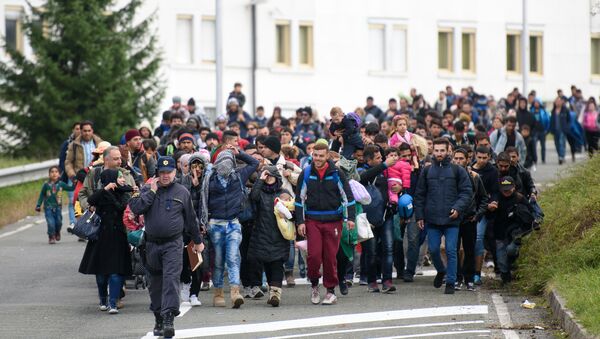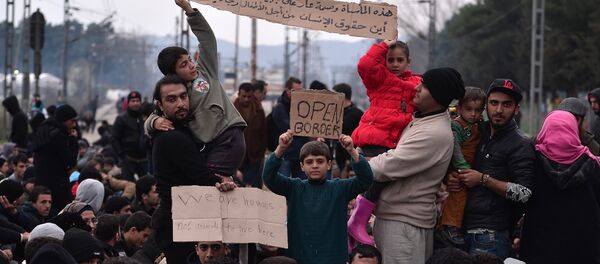“From the point of view of the humanitarian organization we are not in agreement with the measures approved by the Austrian parliament. We think that some of these measures will contribute to a downward spiral in humanitarian terms as far as accepting asylum seekers is concerned.”
Werner further spoke about how this decision by the Austrian parliament is a purely political decision and according to him this is a ‘downward spiral’ for refugees and asylum seekers.
“Every day we have about 200 to 300 asylum seekers coming into Austria so at the same time this has fueled the business of illegal smuggling of people. We need a common European approach towards the challenge. We need a solution for the conflict zones but we also need a common approach in the European Union,” the Secretary-General said.
“One of the principles of the European Union is solidarity so we have to come to a solution where all 28 member states agree to a common asylum system with common standards and then I think that even if 1.5 million try to reach the European Union which has a population of 500 million we should be able to shoulder this burden.”
“If we have a fair system of distribution, in our view, from a humanitarian point there is no reason why we should declare a state of emergency in Austria,” Kerschbaum said.
The secretary-general further spoke about how the overall population of Austria increases only by 1% with the arrival of these refugees and according to him that doesn’t amount to a heavy burden for a country like Austria, as it has good infrastructure, health care and education system.
Earlier, while addressing the Austrian parliament, UN Secretary-General Ban Ki-moon, said such restrictive measures didn't fall in line with the international duties of the Union and its members. His comments came a day after the Austrian parliament passed new legislation to stem the migrant inflow.
The highly disputed law allows the government to declare a state of emergency and reject most asylum applications right at the border. It also prevents all accepted asylum seekers from spending more than three years in the country.
Austria also shed more light on the controversial plan to build a fence at a border crossing with Italy. As previous media reports suggested, construction began about two weeks ago at the Brenner Pass in the Alps. The pass is a key transport corridor between northern and southern Europe.
Earlier in April, Austria’s defense minister said troops could be deployed in the area amid concerns that migrants would seek alternative routes into the European Union.
Austria received 90,000 asylum requests in 2015, the second-highest figure in the EU.



